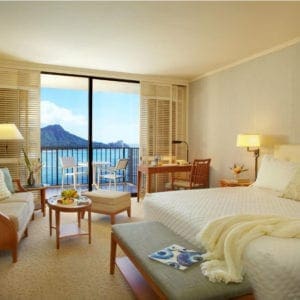 Congratulations, your Upgrade Program was one of the best in the region last year, and now it is dropping like a stone in water. Why? What should you do?
Congratulations, your Upgrade Program was one of the best in the region last year, and now it is dropping like a stone in water. Why? What should you do?
Even the most successful front office Upgrade Programs can suffer setbacks. Sometimes, these setbacks can be quickly corrected. Other times, they can be crippling. Throughout our work launching, managing, and continuously improving Upgrade Programs around the world for the last decade, we have found the following three things can derail any program.
1. Turnover is the main cause of reversals
Now some turnover in the front office and at the front desk is expected; it’s often seen as an entry-level position so some movement is appropriate. It also explains why you will often lose top performers, because they are getting promoted up. That said, if you have a regular stream of new agents, ensuring they are trained is critical. If this is not happening, performance is all but guaranteed to decline. As the new agents struggle to master the basics, many don’t feel comfortable asking guests to upgrade, simply because they don’t know how and no one has trained them on that specifically.
Similarly, the transfer or promotion of a strong Program Coordinator or Champion can lead a range of system failures. Key daily planning stops being done well, and key information stops being communicated effectively to the entire front office. When this happens, performance can drop dramatically within a month or two.
Solution: Ensure you have a process to on-board every new associate on upgrade program basics, specific language and techniques to use; and combine both formal classroom training with coaching and mentoring relationships as available. Some major brands have e-learning available so in those cases, it is valuable to mandate all new team members get educated, ideally before checking any guests in by themselves.
2. Renovations are another challenge
It’s hard to check in a guest when you are ripping out the lobby. It’s difficult to upgrade someone for a fee when there is hammering and other construction noise, and a quiet, peaceful room is an expectation. Major renovations can put a ton of strain on any Upgrade Program. When things get tight, room upgrades become more and more important due to inventory constraints as well as for use as a service recovery tool.
Solution: Dial down the revenue goals for this period of time and take the strain off a property-level team that cannot perform at 100%. Look to further incentivize what you do have available and prepare for coming out of renovations with refresher training and some new contests to re-launch your team’s efforts.
3. Greed can become an issue as properties deal with the consequences of success
At an individual level, if an agent becomes too aggressive and pushy, service suffers and negative comments will soon follow. Even more of a danger, because a custom-designed Upgrade Program has well-constructed performance-based incentives and it is generating millions of dollars of incremental revenue, some executives feel pressure to move more to the bottom line by taking away incentives from their people.
These unilateral decisions to change incentives without careful consideration are a form of punishing success – it is probably the most unfair and demoralizing thing you can do to a successful team. Resentment aside, of course you can do whatever is needed to keep the property afloat, but there are a range of consequences when you take away fairly-earned incentives from hard-working people.
Solution: If you have a good program in place, ensure the incentives are being shared properly and used effectively to promote the program. We like contests and activities that drive quantity and quality of upgrades daily, and interdepartmental recognition will develop better communication and improved teamwork as well.
In our next two pieces, we dive deeper in the issue of Turnover and the need for ongoing training. Specifically, we will look at the challenges new Front Office Agents face with an Upgrade Program, and we will also look at how to choose the right Program Coordinator for the team.
About the authors

Leigh Mamuad is Senior Vice President of Operations at Drake Beil and Associates, LLC (DB&A), an international consulting firm based in Hawaii since 1980 focused on worldwide hospitality industry. DB&A specializes in “Service Excellence Upgrade Programs” for hotels and resorts interested in increasing incremental revenue and REVPAR in Rooms. Leigh has been with DB&A since 2006 and launched over 100+ properties in 20 countries worldwide. Leigh has been in the Hospitality Industry for the past 25 years and is a 1997 graduate from University of Nevada, Las Vegas, with a Bachelor of Science Degree in Hotel Management.

Dana Beil is Vice President of Training and Development at Drake Beil & Associates, an international consulting firm based in Hawaii since 1980 focused on the worldwide hospitality industry. Dana specializes in creating incremental Upgrade revenue for hotels and resorts at the moment of arrival. She currently manages a portfolio of over 60 properties throughout the US, Canada, and the Caribbean. Email dana@drakebeil.com for a complimentary Upgrade revenue assessment for your property or portfolio.















